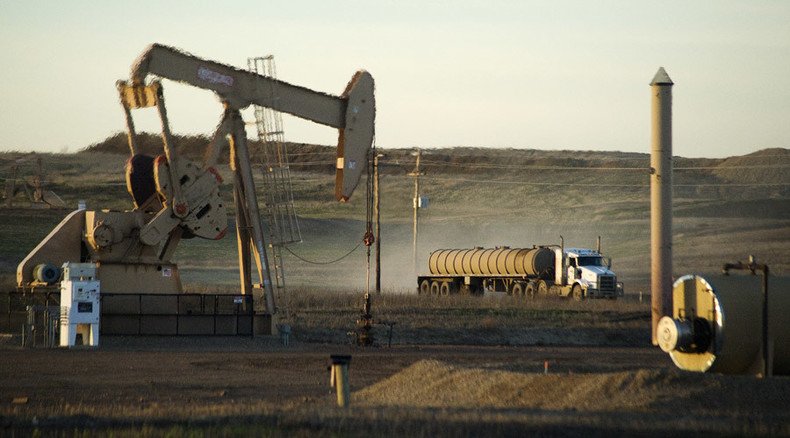‘At today’s oil prices US will keep importing crude’

The ban on crude oil exports might not be lifted any time soon, said Gary Ross, founder of consultants PIRA Energy Group. But how much supply the US has will be a function of where the price goes, and with current prices the US is going to be an importer for a long time, he added.
Support for lifting the longtime ban on crude oil exports is growing in the US. The US possesses very significant oil reserves and already extracts more than three billion barrels a year.
RT: How would the US lifting its ban on oil exports influence the world's oil prices?
Gary Ross: Well, no. The US is still a crude oil importer. We’re importing over 7 million barrels a day of crude oil. So just allowing exports would relieve some of the pressure on some portion of the crude that would find the better, higher price in international markets. But it would just mean that they would have to import more crude to replace that. I think, longer term, the issue always comes down to price. If price moves up strong enough, at a high enough price there is resource in the US that clearly the US could become import independent of. It is all a matter of price, but not at today’s prices that is for sure. We’ve seen the collapse in netback in the US, North America, and broadly speaking around the world. This is going to have a negative impact on future supply.
READ MORE: Oil prices will not fall lower – OPEC chief
RT: Where are the prices going to go? You said earlier that you thought it would be higher than this by now; $100 a barrel or sometime soon...
GR: (Laughing) $100 sometime between now and 2020! That’s a long way off. It’s not about now. Now the reason why you can have very strong prices later is because you’re not getting the investment. The investments are stopping; you’re sort of not worrying about the future’s supply. Even the sort of legacy supply that costs you $70-80-90, that oil will come on, even though the prices are way below that. They will come on because operating costs will still allow it to be economically for the producers to recover some of their capital, nowhere near all of them. But what implies is that you’re going to have a slowdown in investment. And with the slowdown in investment it is going to affect future supply, while the demand is going to continue to grow.
Let’s not forget that 85 percent of the world population is in the developing world, the emerging markets and they want a car, they want a house, they want a job, they want the same ability and all the resources that everyone in the middle class around the world wants. The demand side will continue to grow. And the question is: where will the supply come from? What price would it take for that supply to come?
RT: Where is this support to lift this ban in the US coming from? Is it political, is it financial?
GR: I think it’s economically driven. It doesn’t really make much sense that you should have a ban on crude exports. So I think there is a popular rationale to allow exports; I think it is going to be difficult too. It’s one thing for the House [of Representatives] which is dominated by the Republicans to sort of come out in favor of this. You have an election coming up in the year.
I’m not sure President Obama is going to back this right now. But I think inevitably a new president will, because it makes economic sense for this to happen. You have certain crude, which is sort of not well positioned to go into the US market and get a higher netback because it’s higher quality and other markets. So why shouldn’t one allow this producers to get the highest possible netback - it makes common sense to allow that. Politically it may not happen for a while, but ultimately it will happen. But ultimately how much supply we have will be a function of where the price goes. And at today’s price, the US is going to be an importer for a long time.
The statements, views and opinions expressed in this column are solely those of the author and do not necessarily represent those of RT.
The statements, views and opinions expressed in this column are solely those of the author and do not necessarily represent those of RT.












